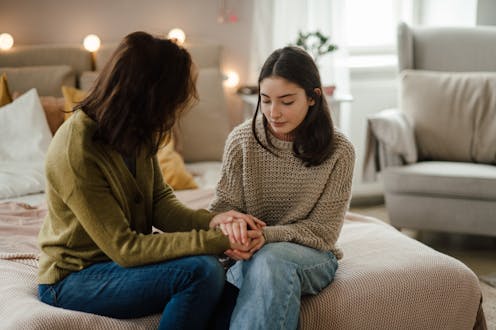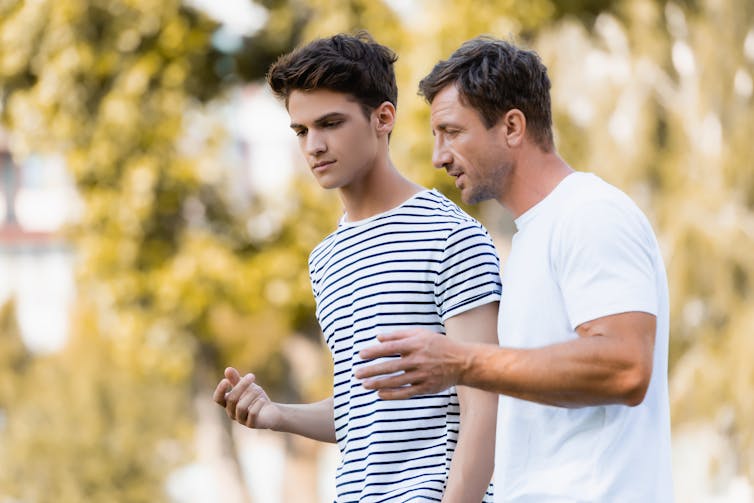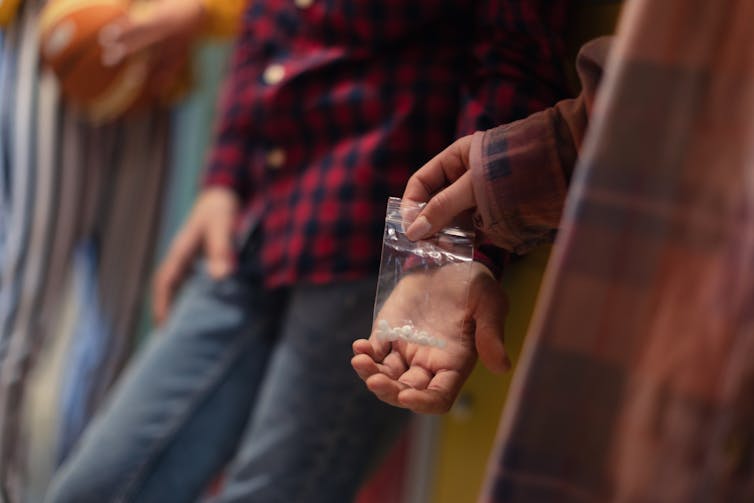Source: The Conversation (Au and NZ) – By Nicole Lee, Professor at the National Drug Research Institute Curtin University (Melbourne based), Curtin University

With several drug overdoses already this festival season, and recent news of three new recreational drugs identified by the drug checking service in Canberra, many parents of teenagers will be wondering how they can keep their kids safe from harmful drugs.
It’s not the first time CANtest, Canberra’s fixed site drug checking service, has identified new drugs circulating. Worldwide, more than 1,000 new drugs have been released on to the illicit market in the past 15 years.
Because illicit drugs are unregulated, there’s no quality control or restrictions on sales, like there is, say, for alcohol or medicines. Manufacturers can add whatever substances they like and sell their drugs as anything. Data from CANtest shows illicit drugs often contain substances other than the expected drug.
The age group most likely to have used an illicit drug recently is young adults in their 20s (30.6%), but nearly 22% of teenagers have tried an illicit drug in their lifetime. The key is to start talking to teens well before they encounter these substances so they’re well prepared.
First, don’t panic
The good news is most teenagers don’t use illicit drugs and the majority of those who do only do so occasionally, and don’t come to serious harm. Drug use among teens in Australia has actually been in decline for more than two decades.
Still, some do, and using illicit drugs is risky, primarily because they’re illegal and you don’t know what you’re getting.
Children are heavily influenced by their parents’ attitudes when it comes to alcohol and other drug use. While some parents worry discussing drugs might encourage drug use, open communication generally, and specifically in discussing drugs, has been associated with lower rates of drug use.
Read more:
How hard is it to say ‘no’ to drugs?
Maintain an open dialogue
Conversations about drugs can start at an early age. Talking early means a young person already has well-formed attitudes before the influence of their peers kicks in. Even before they get to school you can be talking to them about using medicines safely.
As children become teenagers, they’re exposed to more news and information online. You can use current events, like the recent festival overdoses, as a catalyst for raising the issue.
Find a time to talk when you’re both clear-headed, you’re somewhere private and you have plenty of time. In the car can be a good place.

LightField Studios/Shutterstock
Ask questions, listen to what your teen has to say, and resist the urge to lecture. We know honest information works best. Scare tactics and exaggeration are generally unhelpful and may make teens more curious about trying drugs.
For example, claims they will become addicted after using a drug once or that using drugs causes instant and irreversible brain damage are not credible to teens, and they’re likely to ignore them.
Ask what they know about the topic and what their thoughts are. Then give them the facts in a non-judgemental way. Talk about the reasons some people choose to use drugs, and about the risks.
Avoid glorifying drug use, such as talking about fun times you’ve had using drugs in the past. Some parents think this makes them more credible, but it also potentially communicates a permissive attitude to drugs.
Emphasise personal responsibility
If your teen is worried about peer pressure or standing out from their friends if they don’t want to use drugs, it can be helpful to run through a few scenarios with them. What would they say if someone asked them if they wanted to try MDMA?
Emphasise personal responsibility and the importance of making independent decisions, and help them make contingency plans if someone is applying unwanted pressure. This could include seeking out friends at a party who don’t use drugs, planning how to exit, or calling a parent.
It’s absolutely OK to set and be clear about your expectations around drug use, but try not to make threats. Saying things like “if you use drugs you’re on your own” is unhelpful because if they get into trouble they may not feel they can call for help.

Halfpoint/Shutterstock
Take a harm reduction approach
Sometimes though, no matter what you do, some young people will want to experiment. Risk-taking is a natural part of adolescence and young adulthood.
Make sure they know how to respond in an emergency. Consequences from illicit drugs such as toxicity can often be reversed if treated early enough, so make sure your teen knows if they or their friends use something and start feeling unwell that they should get medical help straight away. It’s better to get help and not need it.
At festivals there’s always a medical tent. Ensure they know to call 000 if there is no immediate medical help available and they should disclose what has been taken. Police are not usually called to drug emergencies.
Make sure they feel like they can call you for advice or to pick them up and that they won’t be interrogated or berated. It’s much better if you can talk to them later about what they learnt from the incident.
Read more:
Should I give my teen alcohol? Just a sip, the whole can, or none at all?
If you know your teen is occasionally using recreational drugs or is intending to, or their friends are, you can be more direct with harm reduction information.
Let them know it’s possible to get drugs checked in some places to see what’s in them.
If they can’t, make sure they know they should just take a small amount first to see how a drug affects them. It’s best to take a quarter or half initially to make sure there are no adverse reactions, and ideally wait at least 45 minutes before talking more. It can take up to an hour or more to feel the effects of MDMA.
Mixing drugs with alcohol or mixing multiple drugs, including prescription medicines, significantly increases the risk of something going wrong and should be avoided.
If you need advice you can call the National Alcohol and Other Drug Hotline on 1800 250 015. The Alcohol and Drug Foundation has a range of helpful information about drugs and their effects.
![]()
Nicole Lee works as a paid consultant in the alcohol and other drug sector. She has previously been awarded grants by state and federal governments, National Health and Medical Research Council and other public funding bodies for alcohol and other drug research. She is a Board member of drug checking organisation The Loop Australia.
– ref. Wondering how to talk to your teen about drugs? Start the conversation early, be honest and avoid judgement – https://theconversation.com/wondering-how-to-talk-to-your-teen-about-drugs-start-the-conversation-early-be-honest-and-avoid-judgement-221211




